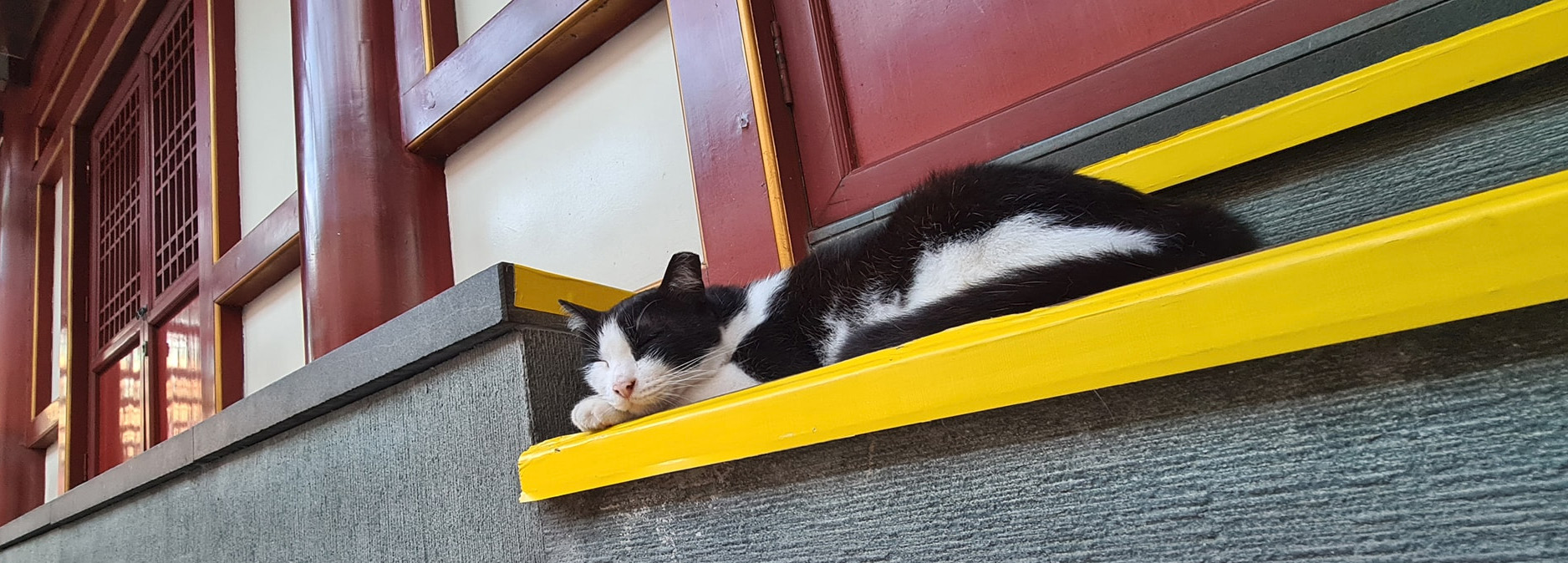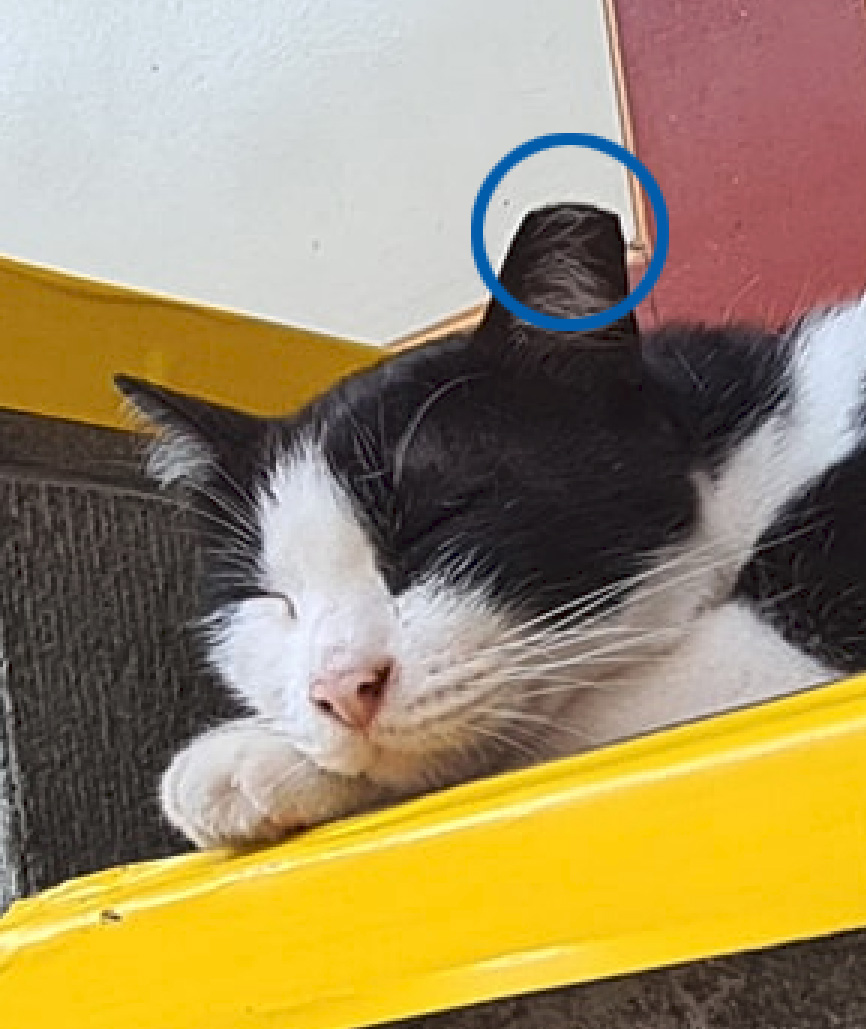Interesting Facts
Monday, July 3rd 2023
When embarking on a journey to a foreign land, it's fascinating to encounter the diverse social norms and cultural behaviours that make each country truly unique. Singapore, with its vibrant blend of traditions and modernity, offers a plethora of oddities, interesting facts, and novelties that can captivate any Western visitor.
In this article, we'll delve into the things you might see that intrigue your curiosity, along with useful tips to enhance your exploration, and things that you might not be aware of.
Community Cats (Stray/Street Cats)
In Singapore, a haven awaits cat enthusiasts as the country boasts a significant population of feline residents. Whether nestled on void decks in Housing & Development Board (HDB) blocks, leisurely lounging near bustling hawker centres, or observing passersby in vibrant Chinatown, these charming creatures grace areas bustling with human activity or habitation. Referred to by different names such as "strays," "street," or "community" cats, these feline companions have found a place in Singaporean society, with the government actively promoting coexistence between humans and these furry inhabitants
It is estimated that there are over 50,000 feral and stray cats within the city-state

Can you approach or feed a stray cat?
It is possible to approach stray cats however, it is essential to exercise caution and demonstrate considerate behaviour, just as you would with any animal. Stray cats may have come from homes where they were mistreated or harmed, and their behaviour will clearly indicate if they feel threatened.
When feeding stray cats, it is crucial to do so with care and respect for the animal's boundaries. The Cat Welfare Society offers valuable guidelines for feeding stray cats, including recommendations on suitable food, providing water, and ensuring proper clean-up.
It is important to note that while feeding stray cats is not illegal, littering is
What happens to stray cats in Singapore?
In Singapore, stray cats have found their place within the bustling human activity and coexist within local communities.
Not-for-profit groups and dedicated volunteers play a crucial role in ensuring the welfare of these feline residents. Various programs, such as Trap-Neuter-Release-Management (TNRM), are implemented to manage the stray cat population. Under TNRM, cats are captured, sterilised, and then released back into the same area where they were initially found
These efforts contribute to maintaining a balanced and healthy stray cat population in the country.
Can you tell if a cat has been sterilised?
When approaching a cat, look at its left ear. If the ear has been tipped, the cat has been sterilised.

Can stray cats be adopted?
It is possible for stray animals to be adopted. Please visit the Animal & Veterinary Service (AVS) website for more details.
Useful Resources
- Project LUNI - (Donation Page)
- Cat Welfare Society - (Donation Page)
- Society for the Prevention of Cruelty to Animals - (Donation Page)
- Cats of SG - crowd-sourced map of community cats in Singapore.
Videos
- Trap-Neuter-Release-Management - Explainer.
- Responsible Community Cat Caregiving in Singapore
- A Community Cat Feeder's Story - Mumtaz' Story
- Feeding Farm Cats - Project LUNI
Everyone is an Aunty or Uncle
Prepare to hear the endearing terms "aunty" or "uncle" being used to address people, even if there is no blood relation involved. This peculiar practice is deeply rooted in colloquialism, and associated with Singlish, the local Singaporean English dialect. It is customary to use these terms when addressing someone older than oneself.
Therefore, don't be surprised if a stranger, younger than you, refers to you as "aunty" or "uncle." Rest assured, this is usually done as a sign of respect.
And on an exceptionally good day, you might even be addressed as "boss."
Three-Quarter Tank Rule
When travelling from Singapore to Malaysia in a Singaporean-registered vehicle, it is important to ensure that your fuel tank is at least three-quarters full to comply with the Three-Quarter Tank Rule.
The purpose of this rule, established in 1991, is to prevent drivers from evading fuel duties imposed in Singapore
More details can be found on the Unlawful Behaviour page.
Raised Windscreen Wipers
When strolling through the streets of Singapore and Malaysia, you might come across parked cars with their windscreen wipers pointed upwards. At first glance, it may seem like a mysterious signal or hidden message akin to shoes hanging from power lines. However, the truth behind this peculiar sight is far less sinister.
Car owners in these regions raise their windscreen wipers as a precautionary measure to protect their vehicles. The rationale behind this practice lies in the concern for potential damage caused by prolonged exposure to the scorching heat of the sun. Car owners' believe that by elevating the wiper blades, they prevent them from being pressed against the glass while the sun's rays heat up the rubber, which could result in deformation or damage to the wiper blades, or damage the windscreen.
What do you call a mobile phone (cell phone)?
In Singapore, it is not uncommon to come across signage requesting individuals to refrain from using their 'handphone,' which refers to mobile or cell phones. The term 'handphone' appears to have its roots in the Chinese word '手機' (Shǒujī), which translates to 'hand machine'.